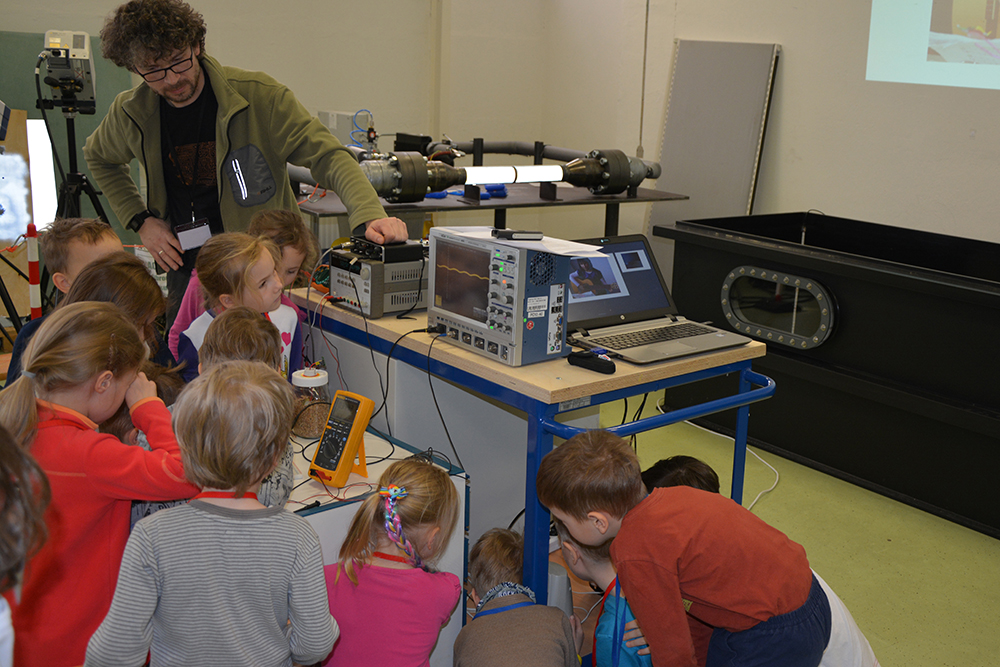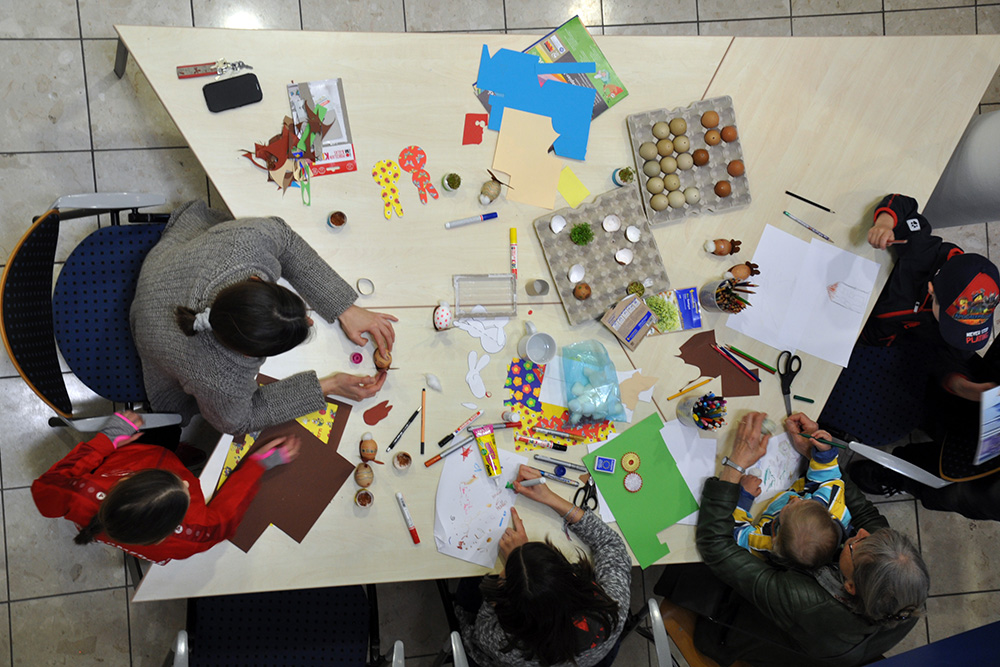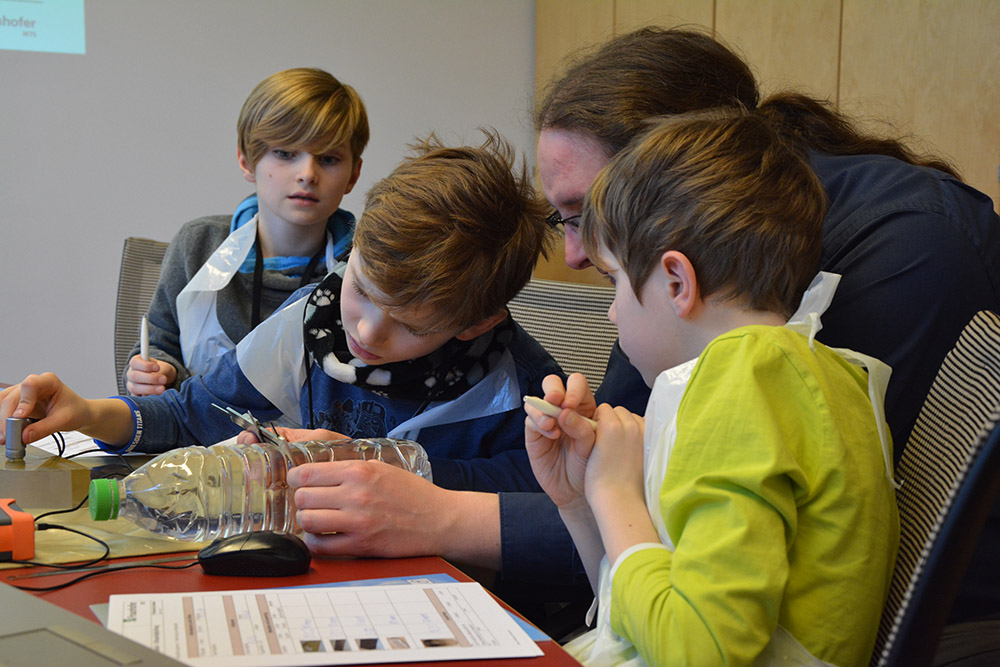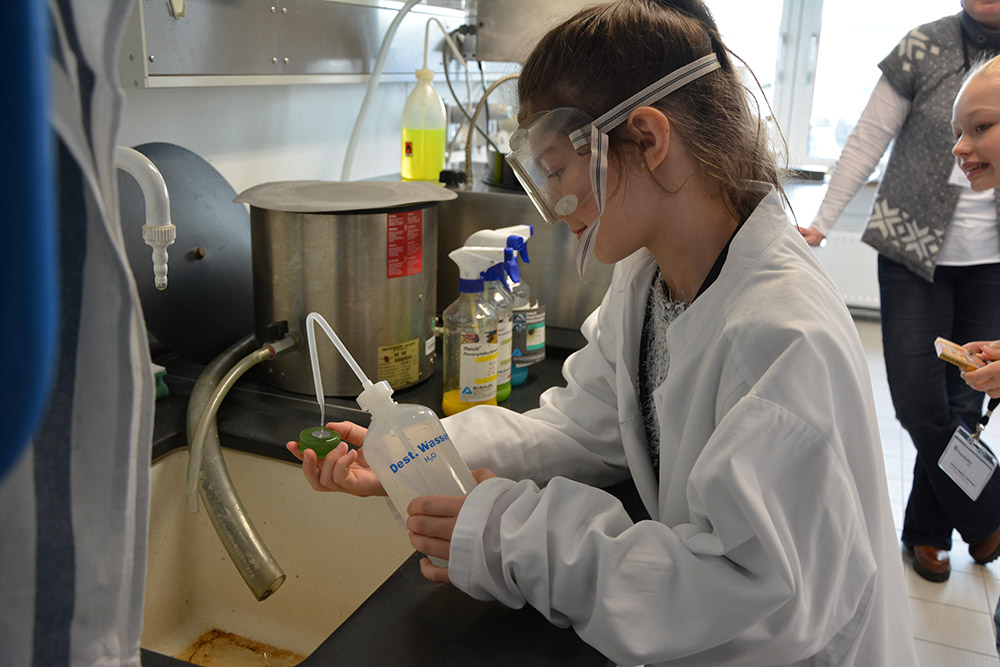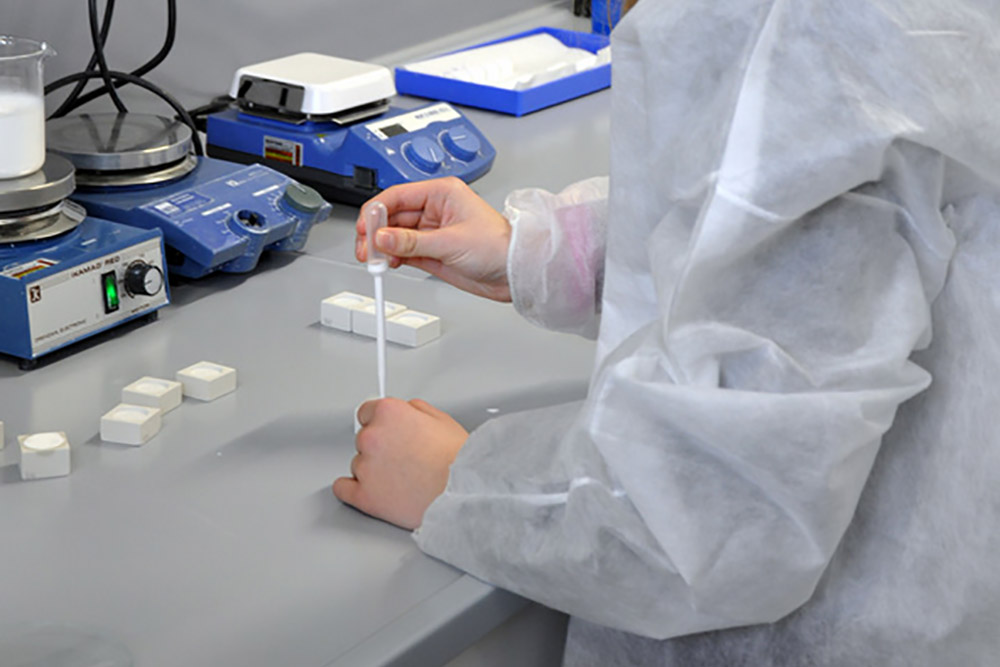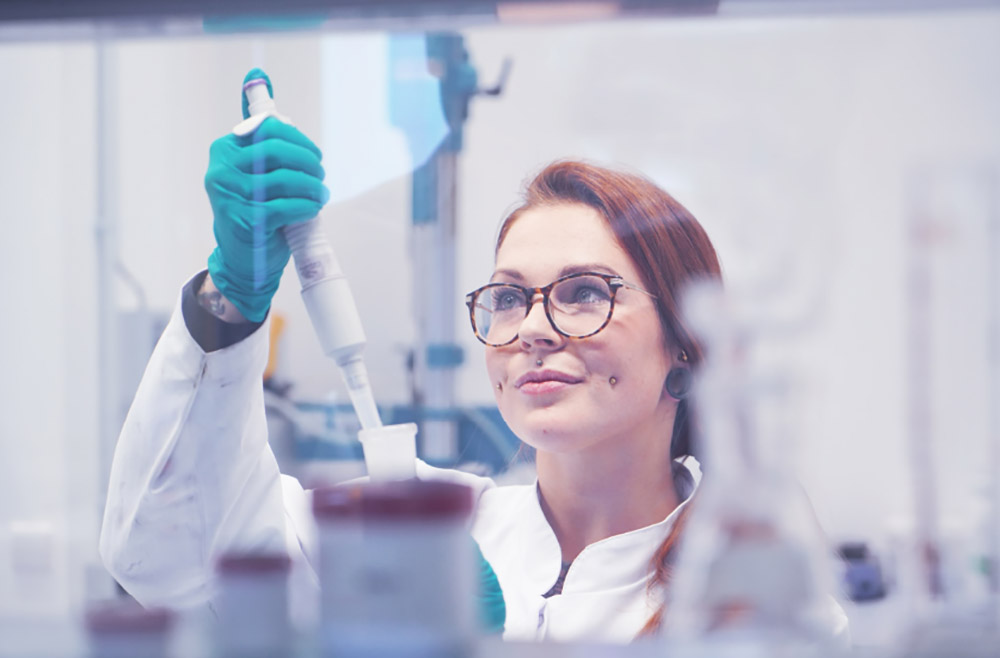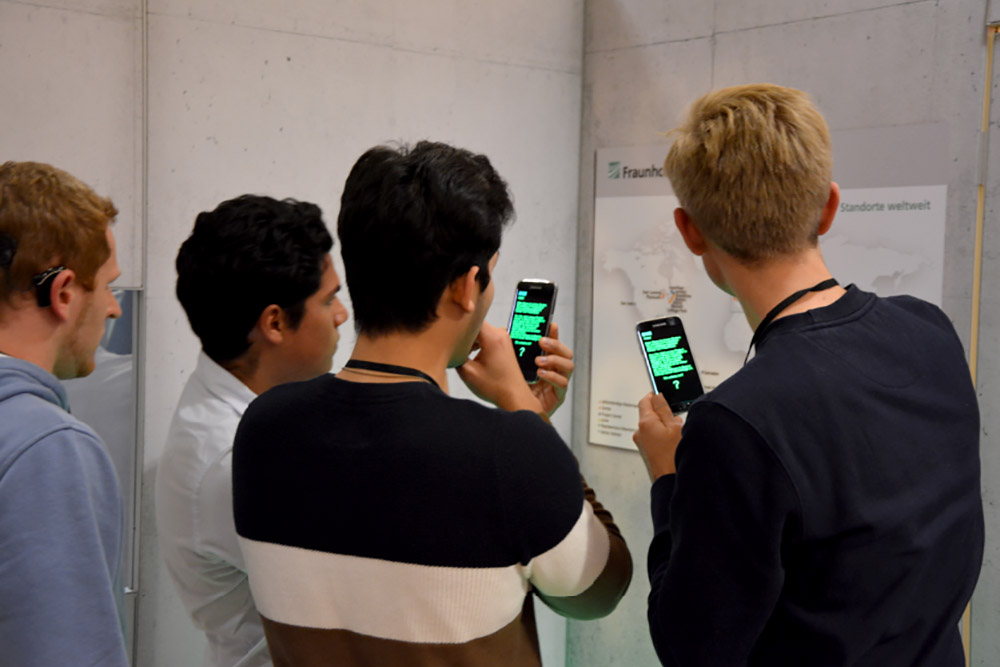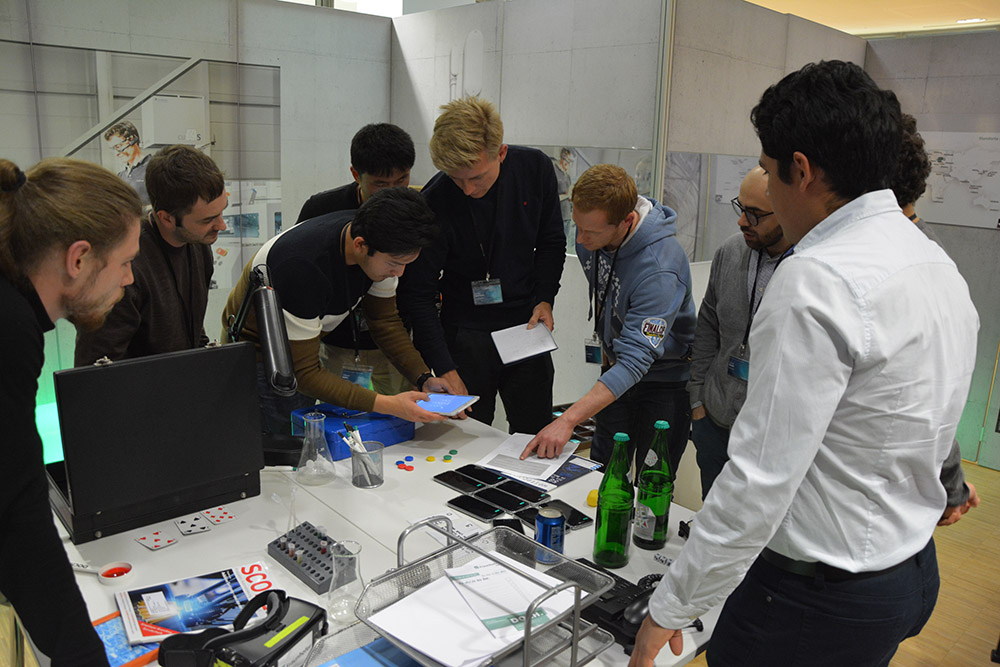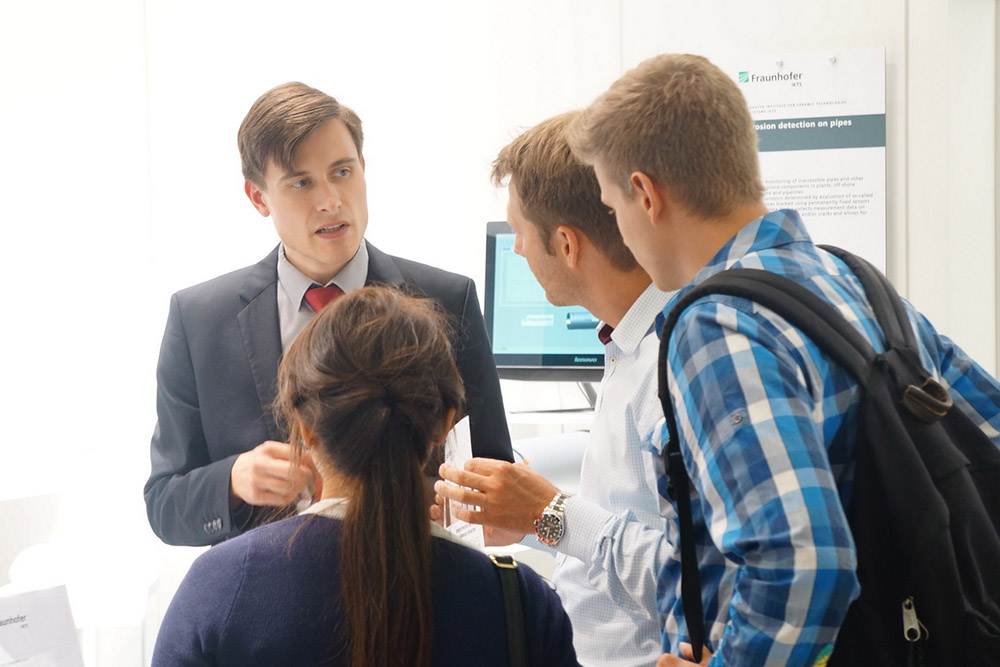Authors: Anna Knollmann | Susanne Freund
Even as a child you cannot get involved in research. BUT YOU CAN.
With our programs for young talent, children can experience from an early age what MINT means for applied research.
MINT? At first glance it sounds like a candy made of peppermint or the new spring trend color, but MINT stands for mathematics, informatics, sciences and technology. These four sciences are among the most innovative areas of industry, are becoming increasingly networked and are leading to new future-oriented industries such as medical technology, information technology and biotechnology. MINT therefore also stands for a broad range of professions, from insurance mathematician, IT management assistant, biochemist to cardiotechnician.
In order to get as many children and young people as possible from daycare to university interested in MINT subjects and MINT professions, the Fraunhofer IKTS advertises a wide range of young talent programs. Here we show very clearly and concretely that MINT plays a role everywhere.
Guided tours for children or pupils
Guided tours for children and pupils offer a first point of contact with MINT disciplines. Using concrete examples, we show how we look for solutions to specific everyday problems and that natural sciences play a very important role in this. Together with our scientists, the children consider, for example, how pests in a grain warehouse can be tracked down based on their eating sounds.
Open Day / Long Night of the Sciences
The Open Day or the Long Night of the Sciences are also aimed at children and young people with special offers. In lectures, guided tours, and experiments, we show current research highlights in the field of advanced ceramics - for example, how ceramic filters, membranes, and other ceramic-based components help to treat wastewater in a very efficient way. Or that screen printing can be used to print not only color on paper, but also sensors on electronic components.
Junior Doctor
The JUNIORDOCTOR, the talent support program of the city of Dresden, gives young people in the 3rd to 12th grade a lively insight into research, engineering, politics and culture. We offer specific workshops for this purpose. With the topic of ultrasound, for example, the participants learn the first basics of the test procedure and subsequently examine different materials for defects in an experimental setup. The children learn to carry out measurements, record measured values and thus localize defects.
Girls‘ Day
At the Girls' Day, schoolgirls from the 5th grade onwards are introduced to occupational fields that girls rarely consider in the process of career orientation. By means of practical examples, the participants experience in laboratories and pilot plants how interesting and exciting this work can be. At the Fraunhofer IKTS, female students are allowed to become active in the laboratory themselves. For example, they try to produce ceramic dental prostheses using the slip casting process. In addition, the girls use chemical synthesis to create a water-repellent layer and examine it using various analytical methods.
Vocational training
Trainees at the Fraunhofer IKTS are involved in ongoing projects from the very beginning and get to know the entire range of modern work processes. This is why our trainees have been among the best in the Fraunhofer-Gesellschaft for years. We offer the following apprenticeships: chemical laboratory technician, electronics technician for devices and systems, IT specialist for system integration, industrial electronics technician, industrial ceramics technician, industrial mechanic, office management assistant, mechatronics technician, media designer for digital and print media, physics laboratory technician and materials tester.
Student research projects, bacholor, master, diploma and doctoral theses, employment as student assistant
In cooperation with the Chair of Inorganic Non-Metallic Materials, the Institute of Electronic Packaging Technology, the Institute of Solid State Electronics as well as the Dresden Center for Nanoanalysis of the TU Dresden, the Institute of Technical and Environmental Chemistry of the Friedrich Schiller University Jena and the Department SciTec Materials Engineering of the Ernst Abbe University of Applied Sciences Jena we offer students scientific work in the context of student research projects, bachelor, master or diploma theses. After completing their studies, it is also possible to write a doctoral thesis at the Fraunhofer IKTS. But there are also numerous opportunities for students and interns who are interested in our fields of work and would like to expand their knowledge. Our research areas include Materials and Processes, Mechanical and Automotive Engineering, Electronics and Microsystems, Energy, Environmental and Process Engineering, Bio- and Medical Technology, Non-Destructive Testing and Monitoring, Water, and Material and Process Analysis.
Career Night
The Dresden Fraunhofer Career Night offers students the opportunity to get to know the different research areas of the Fraunhofer IKTS and to establish first contacts with scientists in bilateral talks. In addition to a lecture program, guided tours of laboratories and pilot plants are offered. An escape game gives participants the additional opportunity to demonstrate their social skills: to realize their own ideas and at the same time demonstrate team spirit.
Jobfairs
At job fairs such as "Career Start" we regularly inform about training and career opportunities at Fraunhofer IKTS. These are 10 good reasons for working with us:
| 1. Popular employer |
6. Freedom of research |
| 2. Interesting fields of research | 7. Successful promotion of young talent |
| 3. The most modern technologies |
8. Numerous further training courses |
| 4. Stable (basic) financing |
9. Promotion of young scientists |
| 5. Open-mindedness |
10. Fraunhofer as (career) springboard |
Top research needs top talents!
We are happy about new MINTis.
Stay informed: You are welcome to subscribe to our newsletter, read our other blog articles and follow us on LinkedIn, Instagram and YouTube.
